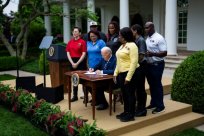Malaysia's neo -Mao Mao replica has come to an end. Although the candidate of the Pakatan Harapan Democratic Party was elected with 14,000 votes and most of the votes were 3869 votes, the analysis after the election was still "ethnic politics".The National League emphasized that the candidate for Malay was on the battlefield and attacked Peng Xiaotao as a "Chinese young student".Seeing the demolition of the People's Bank of China, it was referred to as the original sin of Huahua, and the independent middle school students contributed to the country.Isn't this also caught in the ethnic politics?
Today, the ethnic conflict caused by ethnic politics around the world is the main challenge facing the world.The African Rwida Holocaust, the war in the Italian war, and the invasion of Ukraine in Russia (derived from the Crimean being annexed by Russia), basically all part of ethnic conflicts.Therefore, there are two problems in front of the Malaysian people: 1. Why cause ethnic conflict?2. How to respond in the face of conflicts?
Therefore, it is especially important to understand what politics of ethnic groups is.
How did the Malaysian ethnic politics formed?Since the founding of independence in 1957, the three major ethnic groups have representative parties. UMNO represented Malay, MCA on behalf of the Chinese, and Indians of the National University.The three parties share regimes and political resources. It seems that it is harmonious and shared in harmony.However, due to the strength of UMNO, relying on the indigenous special rights, it gradually became unbalanced. Umno was the boss, and the MCA and the National Party were reduced to the younger brother.
The ethnic group of colonial ethnic groups in Southeast Asia is optimistic.They believe that with the social development, industrialization, marketization, and advanced communication of colonial colonization, people will integrate into modern society because of their increase in knowledge.The changes in this environment will cause people to weaken ethnic identity, and replace them with national identity that matches modern countries.
This ideal phenomenon has not happened, why?This involves "native theory".Some people believe that the recognition of their ethnic groups is a kind of native emotional attachment (including religion) based on blood bonds, which will not easily disappear in modernization.
The key is the elite.Scholars studying ethnic politics believe that the incitement of political elites is the reason for the formation of ethnic groups and may guide conflict.This is just the root cause of the five -one race conflict.Scholars have further demonstrated that the political elite is very cunning. They may exaggerate historical contradictions, incite the dissatisfaction of ethnic groups, to obtain more voting support, and achieve the rise in political power to get political dividends from them.
Aside from UMNO, what the National Alliance is pursuing is also a kind of "ethnic politics."
The "native theory" refers to the "ethnic group is the native emotional attachment (religion) of the blood bond", which can be applied to them.As for the modern social development, industrialization, urbanization, and communication, they have not weakened ethnic politics, nor can they bring any changes to the four states of the green tide. Why?
The more significant differences are Jilandan and Dengjia Building. They adopt a closed economy, the tourism industry is uncomfortable, and the pace of modernization is almost stagnant.The brainwashing education of a large number of religious schools and kindergartens is also disconnected from the central government's unified basic education.How can this weaken "ethnic politics"?
The above analysis is just a scale claw, although it can spy on the strong and tenacious side of the politics of the Malaysian ethnic group, but people are really helpless, can they only retreat?Those who often call "embracing multiple" should not avoid responsibilities.After all, the orientation is diverse and emphasizes the harmony of the ethnic group. It is the beginning of weakening the politics of ethnic groups. It may be difficult, and it is better to do nothing more than nothing.
The author is a local writer



